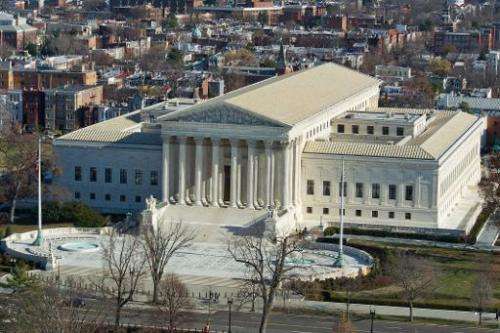Top US court sifts arguments on software patents

The US Supreme Court heard arguments Monday on whether patents can be enforced for software-created business practices, in a case likely to have a big impact on the tech sector.
Justices appeared to express skepticism over the patent argument in the case brought by Alice Corp. against CLS Bank over its patented process for financial transactions.
"All you're talking about, if I may use that term, is an idea," said Justice Anthony Kennedy, in an exchange with Alice Corp. attorney Carter Phillips.
The attorney for Alice Corp, an Australian-based financial services firm, said that a ruling against the company "puts hundreds of thousands of patents in balance."
The case comes amid heated debate in the technology sector over patents. Some claim the patent system is being abused by so-called "junk" patents of ordinary ideas but others claim patent enforcement is needed to protect innovators.
CLS is accused of violating the Alice patents in a system that assesses the financial risks of daily exchanges to ensure against losses.
An appeals court upheld the verdict for Alice Corp, but CLS is backed by the US government and some key tech firms including Google and Facebook. But other companies in the sector support Alice Corp.
"Applying the program simply on a physical machine like a computer is not patentable," CLS attorney Mark Perry told the justices.
Justice Stephen Breyer appeared to back that argument, saying the case was about "an abstract idea."
"You're doing through a machine what you used to do by hand. It's not an invention," added Justice Antonin Scalia.
The parties discussed the applicability of the US Patent Act, which bans patents for "laws of nature, physical phenomena and abstract ideas."
Arguing for President Barack Obama's administration, US Solicitor General Donald Verrilli said of such patents: "We're not saying they can't do it. We're saying they can't monopolize it."
The top US court last year ruled that human genes could not be patented in a case involving a company holding patents on genes associated with hereditary breast and ovarian cancer.
A decision in the case is expected by late June.
© 2014 AFP
















